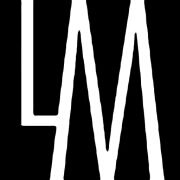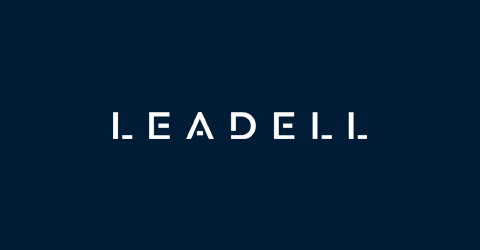Best Advertising and Marketing Lawyers in Republic of Lithuania
Share your needs with us, get contacted by law firms.
Free. Takes 2 min.
Or refine your search by selecting a city:
List of the best lawyers in Republic of Lithuania
About Advertising and Marketing Law in Republic of Lithuania
Advertising and Marketing laws in the Republic of Lithuania are governed by a combination of EU directives and national regulations aimed at ensuring transparent, fair, and honest marketing practices. Lithuanian laws focus on protecting consumer rights, promoting healthy competition in the market, and preventing deceptive or misleading advertisements. Businesses must navigate a complex legal landscape to ensure compliance and avoid legal pitfalls.
Why You May Need a Lawyer
People or businesses may require legal assistance in Advertising and Marketing for several reasons:
- Ensuring compliance with local and EU advertising laws.
- Handling disputes related to misleading or deceptive advertisements.
- Assisting in the registration and protection of trademarks.
- Drafting and reviewing marketing agreements and contracts.
- Guidance on digital advertising compliance, including data protection regulations.
- Dealing with complaints or investigations by regulatory authorities.
- Navigating competition laws to avoid anti-competitive practices.
Local Laws Overview
Key aspects of local laws relevant to Advertising and Marketing in the Republic of Lithuania include:
- Law on Advertising: Regulates the content and dissemination of advertisements, ensuring they are not misleading or harmful.
- Consumer Protection Law: Focuses on consumer rights, prohibiting unfair commercial practices and deceptive marketing strategies.
- Trademark Law: Governs the registration, protection, and enforcement of trademarks to safeguard brand identity.
- Competition Law: Aims to prevent anti-competitive behavior and ensure fair competition in the marketplace.
- GDPR Compliance: Regulations around the collection, use, and protection of personal data in advertising, in line with the General Data Protection Regulation (GDPR).
Frequently Asked Questions
What constitutes false advertising under Lithuanian law?
False advertising is any advertisement that is misleading or deceptive in nature. This could include incorrect information about product characteristics, price, or the terms of sale.
Are there specific regulations for online advertising?
Yes, online advertising must comply with general advertising laws and additional data protection regulations under GDPR. This includes transparency about cookies and obtaining user consent for data collection.
What are the penalties for non-compliance with advertising laws?
Penalties can include fines, orders to cease marketing activities, and in severe cases, criminal charges against individuals responsible for the misleading advertisements.
Can comparative advertising be used in Lithuania?
Comparative advertising is allowed as long as it is not misleading and compares goods or services meeting the same needs or intended for the same purpose objectively.
How can I protect my trademark in Lithuania?
Trademarks can be registered with the State Patent Bureau of the Republic of Lithuania. Once registered, you gain exclusive rights to use that trademark.
How are marketing agreements regulated?
Marketing agreements are regulated by the Civil Code of the Republic of Lithuania, which covers contractual obligations and enforcement.
What should I do if someone is using my trademark without permission?
If your trademark is being used without authorization, you can seek legal recourse, including cease-and-desist orders and claims for damages.
Are there advertising restrictions related to specific products?
Yes, certain products such as tobacco, alcohol, and pharmaceuticals are subject to stringent advertising regulations to protect public health and safety.
What are unfair commercial practices under Lithuanian law?
Unfair commercial practices include actions that distort the economic behavior of consumers, such as aggressive selling techniques, misleading omissions, and false claims.
Can I advertise discounts and promotions freely?
Yes, but you must ensure that any discounts and promotions are presented clearly and accurately reflect the offer to avoid misleading consumers.
Additional Resources
For further information and assistance, consider reaching out to the following resources:
- State Consumer Rights Protection Authority: Supervises advertising practices and handles consumer complaints.
- State Patent Bureau: Manages trademark registrations and disputes.
- Competition Council of the Republic of Lithuania: Monitors compliance with competition laws.
- Law firms specializing in Advertising and Marketing: Professional legal services to ensure compliance and handle disputes.
Next Steps
If you require legal assistance in Advertising and Marketing, follow these steps:
- Identify your specific legal needs and the related laws or regulations.
- Consult with a specialized lawyer or law firm experienced in advertising and marketing law.
- Prepare any relevant documents or information related to your case.
- Schedule a consultation to discuss your situation and legal options.
- Follow the legal advice provided to ensure compliance and resolve any disputes.
Lawzana helps you find the best lawyers and law firms in Republic of Lithuania through a curated and pre-screened list of qualified legal professionals. Our platform offers rankings and detailed profiles of attorneys and law firms, allowing you to compare based on practice areas, including Advertising and Marketing, experience, and client feedback.
Each profile includes a description of the firm's areas of practice, client reviews, team members and partners, year of establishment, spoken languages, office locations, contact information, social media presence, and any published articles or resources. Most firms on our platform speak English and are experienced in both local and international legal matters.
Get a quote from top-rated law firms in Republic of Lithuania — quickly, securely, and without unnecessary hassle.
Disclaimer:
The information provided on this page is for general informational purposes only and does not constitute legal advice. While we strive to ensure the accuracy and relevance of the content, legal information may change over time, and interpretations of the law can vary. You should always consult with a qualified legal professional for advice specific to your situation.
We disclaim all liability for actions taken or not taken based on the content of this page. If you believe any information is incorrect or outdated, please contact us, and we will review and update it where appropriate.
Browse advertising and marketing law firms by city in Republic of Lithuania
Refine your search by selecting a city.













